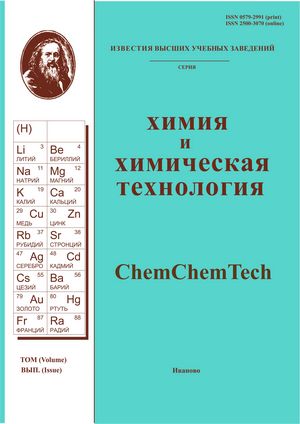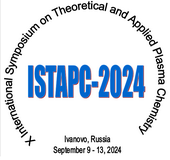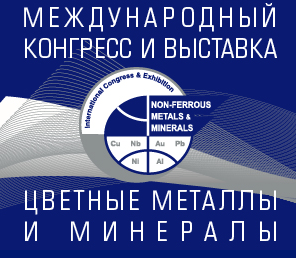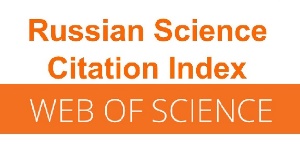БИОРАЗЛОЖЕНИЕ КРИОГЕЛЕЙ НА ОСНОВЕ ПОЛИВИНИЛОВОГО СПИРТА И КРАХМАЛА С ГЛИЦЕРИНОМ И БОРНОЙ КИСЛОТОЙ
Аннотация
В работе приведены сведения о получении и исследовании способности к биоразложению криогелей на основе водорастворимых синтетического и природного полимеров - поливинилового спирта (ПВС) и крахмала и влиянии на эти свойства глицерина и борной кислоты в качестве пластификатора. Показано, что максимальный модуль упругости дали составы криогелей с включением борной кислоты – 18-45 кПа, однако они имели невысокую способность к биоразложению, теряя за месяц в воде и почве лишь 26-30 % от массы сухого вещества. Модуль упругости трехкомпонентных криогелей «вода-ПВС-крахмал» не превышал 3,8 кПа и снижался с увеличением доли крахмала в составе. Биоразлагаемость в воде и почве у таких криогелей повышалась до 70-80% за 1-1,5 мес. с ростом доли крахмала в смеси. Для получения новых материалов наибольшую перспективу имеют четырехкомпонентные составы с добавлением либо больших доз глицерина (20%), либо борной кислоты (0,5%). Криогели на основе этих растворов имели высокий модуль упругости – 12,4 и 24 кПа – и высокую биоразлагаемость в почве – 84 и 64% соответственно. Деструкция в почве всех вариантов криогелей, кроме содержащих борную кислоту, протекала с повышением общей численности почвенной микрофлоры в 3-60 раз и микроорганизмов, утилизирующих крахмал, в 10-250 раз. Криогели на основе крахмала и крахмала с глицерином в ходе деструкции в воде быстро теряли структуру, распадаясь на мелкие фрагменты. Повышение доли ПВС в составе криогеля обеспечивало долгое сохранение структуры в воде и медленное снижение массы. Максимально стойкими были образцы на основе ПВС и ПВС с борной кислотой. Деструкция в почве внешне проявлялась уменьшением размеров – образец «съеживался», потерей структуры, неровностями, порывами, изменением цвета за счет колонизирования микроорганизмами. Наиболее стойкими в почвенном тесте проявили себя составы, содержащие борную кислоту.
Для цитирования:
Овсянникова В.С., Фуфаева М.С., Драгула С.Е. Биоразложение криогелей на основе поливинилового спирта и крахмала с глицерином и борной кислотой. Изв. вузов. Химия и хим. технология. 2025. Т. 68. Вып. 8. С. 126-134. DOI: 10.6060/ivkkt.20256808.7t.
Литература
Studenikina L.N., Korchagin V.I., Iushin V.O., Melnikov A.A. Effect of the nature of the filler on the properties of the "polyvinyl alcohol : polysaccharide" composite. Sorpts. Khromatogr. Protsessy. 2021. V. 21. N 1. P. 111-118 (in Russian). DOI: 10.17308/sorpchrom.2021.21/3226.
Grazhulevichene V., Augulis L., Grazhulevichius Yu.V., Kapitanovas P., Vedegyte Yu. Biodegradable starch, polyvinyl alcohol and peat composites for agricultural use. Russ. J. Appl. Chem. 2007. V. 80. N 11. P. 1928-1930. DOI: 10.1134/S1070427207110304.
Sun L., Wang J., Liang J. Boric Acid Cross-linked 3D Polyvinyl Alcohol Gel Beads by NaOH-Titration Method as a Suitable Biomass Immobilization Matrix. J. Polym. Environ. 2020. V. 28. P. 532-541. DOI: 10.1007/s10924-019-01610-z.
Mirzoirova V.A., Mukhamediev M.G. Obtaining biode-gradable composite films based on starch and polyvinyl alcohol. Universum: Khim. Biol.: Elektron. Nauch. Zhurn. 2022. N 11(101). (in Russian). DOI: 10.32743/UniChem.2022.101.11.14512.
Byrne D., Boeije G., Croft I. Biodegradability of Polyvinyl Alcohol Based Film Used for Liquid Detergent Cap-sules. Tenside Surfact. Det. 2021. V. 58. N 2. P. 88-96. DOI: 10.1515/tsd-2020-2326.
Julinová M., Vańharová L., Jurca M. Water-Soluble Polymeric Xenot.biotics – Polyvinyl Alcohol and Polyvi-nylpyrrolidon – and Potential Solutions to Environmental Issues: A Brief Review. J. Environ. Manag. 2018. V. 228. P. 213-222. DOI: 10.1016/j.jenvman.2018.09.010.
Studenikina L.N., Domareva S.Yu., Repin P.S., Zuyeva N.V., Matveyeva A.V., Mel’nikov A.A. Features of hy-drolytic and enzymatic degradation of polyvinyl alcohol-based materials. Vopr. Sovr. Nauki Praktiki. 2022. V. 4. N 86. P. 34-33 (in Russian). DOI: 10.17277/voprosy.2022.04.pp.034-044.
Fufaeva M.S., Kim E., Ovsyannikova V.S., Manzhai V.N., Altunina L.K. Preparation and properties of biode-gradable cryogels based on polyvinyl alcohol and potato starch for use in soil erosion control. Khim Interes. Ustoiych. Razv. 2023. V. 31. N 5. P. 601-607 (in Russian). DOI: 10.15372/KhUR2023504.
Altunina L.K., Burkov V.P., Burkov P.V., Dudnikov V.Yu., Osadchaya G.G., Ovsyannikova V.S., Fufaeva M.S. Application of cryogels for solving problems of rational nature management and operation of trunk pipelines in Arctic conditions. Nauka Tekhnol. Truboprovod. Transp. Nefti Nefteprod. 2020. V. 10. N 2. P. 173-185 (in Russian). DOI: 10.28999/2541-9595-2020-10-2-173-185.
Altunina L.K., Kuvshinov V.A., Dolgich S.N. Cryogels for plugging operations in areas of permafrost. Gydrotekhnika. 2010. N 3. P. 56-60 (in Russian).
Malkin A.Ya. Fundamentals of Rheology. SPb.: Professiya. 2018. 336 p. (in Russian).
Manzhai V.N., Fufaeva M.S., Kashlach E.S. Relaxation of Mechanical Stress in Poly(vinyl alcohol) Cryogels of Different Compositions. Chin. J. Polym. Sci. 2023. V. 41. N 3. P. 442-447. DOI: 10.1007/s10118-022-2889-8.
GOST 18616-80. Plastics. Method of determination of shrinkage. М., Gosstandart. USSR. 01.01.1990. (in Rus-sian)
GOST R 54530-2011. Resources saving. Packaging. Requirements, criteria and test scheme through composting and biodegradation (01.01.2013). М.: Standartinform. 2014. 18 p. (in Russian)
Tereshchenko N.N., Akimova E.Е., Minaeva О.М. Modern methods of assessment of microbiological prop-erties and ecological status of soil: practicum. Tomsk: Izd. dom TGU. 2017. 152 p. (in Russian).
Methods of soil microbiology and biochemistry. Ed. by D.G. Zvyagintsev. М.: Izd-vo MSU. 1991. 304 p. (in Rus-sian).
Dubrovskij S.А., Kuznecova V.I. Elasticity and structure of polyacrylate and starch-based hydrogels. Vysokomolek. Soed..Ser. A. 1993. V. 35. N 3. P. 271-275 (in Russian).
Studenikina L.N., Domoreva S.Yu., Golenskikh Yu.E., Matveeva A.V., Melnikov A.A. Increasing the strength and water resistance of materials based on poly-vinyl alcohol with boric acid. Vestn. VGUIT. 2022. V. 84. N 2. P. 249-255 (in Russian). DOI: 10.20914/2310-1202-2022-2-249-255.
Wu H.F., Yue L.Z., Jiang S.L., Lu Y.Q., Wu Y.X. Biodegradation of polyvinyl alcohol by different dominant degrading bacterial strains in a baffled anaerobic bioreactor. Water Sci. Technol. 2019. V. 79. N 10. P. 2005-2012. DOI: 10.2166/wst.2019.202.
Pavlyonok A.V., Davydova O.V., Drobyshevskaya N.E., Poddenezhny E.N., Boyko A.A. Manufacturing and properties of biodegradable composite materials based on polyvinyl alcohol and starch. Vestn. GGTU im. P.O. Su-khogo. Materialovedenie. 2018. N 1. P. 38-46 (in Rus-sian).
Papkina V.Yu., Malinkina О.N., Shipovskaya A.B., Grebenyuk L.V., Stepanov M.V. Properties, Soil Degradation and Fitotoxicity of Starch Composites with Polyvi-nyl Alcohol. Izv. Saratov. Univ. Nov. Ser. Ser. Khim. Bi-ol. Ekolog. 2018. V. 18. Iss. 1. P. 25-35 (in Russian). DOI: 10.18500/1816-9775-2018-18-1-25-35.
Ovsyannikova V.S., Fufaeva M.S., Kim E., Altunina L.K. Biodegradation in soil of polymeric materials based on polyvinyl alcohol and starch cryogels. ChemChemTech [Izv. Vyssh. Uchebn. Zaved. Khim. Khim. Tekhnol.]. 2023. V. 66. N 11. P. 126-134. DOI: 10.6060/ivkkt.20236611.6t.
Fufaeva M.S., Altunina L.K. Cryogels to increase the service life of winter roads. ChemChemTech [Izv. Vyssh. Uchebn. Zaved. Khim. Khim. Tekhnol.]. 2024. V. 67. N 8. P. 29-35. DOI: 10.6060/ivkkt.20246708.13t.



















